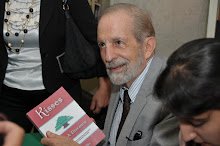I remember when taking a strategic planning course in an MBA program, I was assigned to a team with four younger students. The "leader" of the group was a waiter at one of the local resort restaurants, and who thought he knew a great deal about market planning. The other members were also people with varying degrees of non-management experience.
The first case we were given involved a small manufacturer who was trying to establish his company in a new market. As usually happens in these exercises, there's a lot of thrashing around, with many and divergent opinions being presented.
"Look, guys," I finally offered, "this chap doesn't understand his market, who his customers are, what they want, and how to reach them." These kids didn't know me or anything about my experience so I was outvoted in the final report. When the group presented its findings to the teacher, he shook his head and proceeded to repeat almost word for word what I had told the group.
Even with my past experience, I found I had to study this new market of bookselling. If you could just read a book to master it, everybody would be successful. Many product providers, authors included, believe that old canard that "if you build a better mousetrap, the world will beat a path to your door." The landscape is littered with companies that thought they had a dynamite product but who also didn't understand how to approach their market.
As I've mentioned before, writing a great book is only a third of the effort in becoming successful. Authors, just like other businesspersons, must try to define the marketplace vis-a-vis their product and devise plans to reach those customers. Even if you believe, as most authors do, that your book has general appeal, you will benefit by dividing the market into segments that are more focused on your genre or subject matter.
You must ask yourself, "What is the demographic of my target audience? Are they men or women? Older or younger? Fiction or non-fiction readers?" And so on down the line. That, of course, is a very top level view, but you can see where you have to begin to start slicing and dicing to narrow the focus further. Once you decide on the most fertile grouping, where your efforts will yield the best results, then you have to examine how you can focus your efforts to reach them.
I'll be the first to admit that this isn't a precise science, and as mentioned in prior posts, I didn't get it right with my first marketing efforts. I continue to try to get better at it. When possible (especially with mail-orderers) I ask how they came upon the book, and what they liked about it. I'm not bashful in also asking if they know how I could attract other readers like themselves. Readers love this attention and sincerely want to help. Some told me they knew of groups that met at churches, or libraries, senior centers, or even colleges and universities. That information opened up whole new marketing possibilities. I also found there were many groups organized around recording life experiences. These are people interested in memoir writing, and whom I could contact to give presentations.
Given the tools available on personal computers, such as PowerPoint, authors can easily gin up lectures that appeal specifically to each group they are addressing. I now have a half-dozen different presentations that I use depending on the audience. Give it a try!
Subscribe to:
Post Comments (Atom)




No comments:
Post a Comment